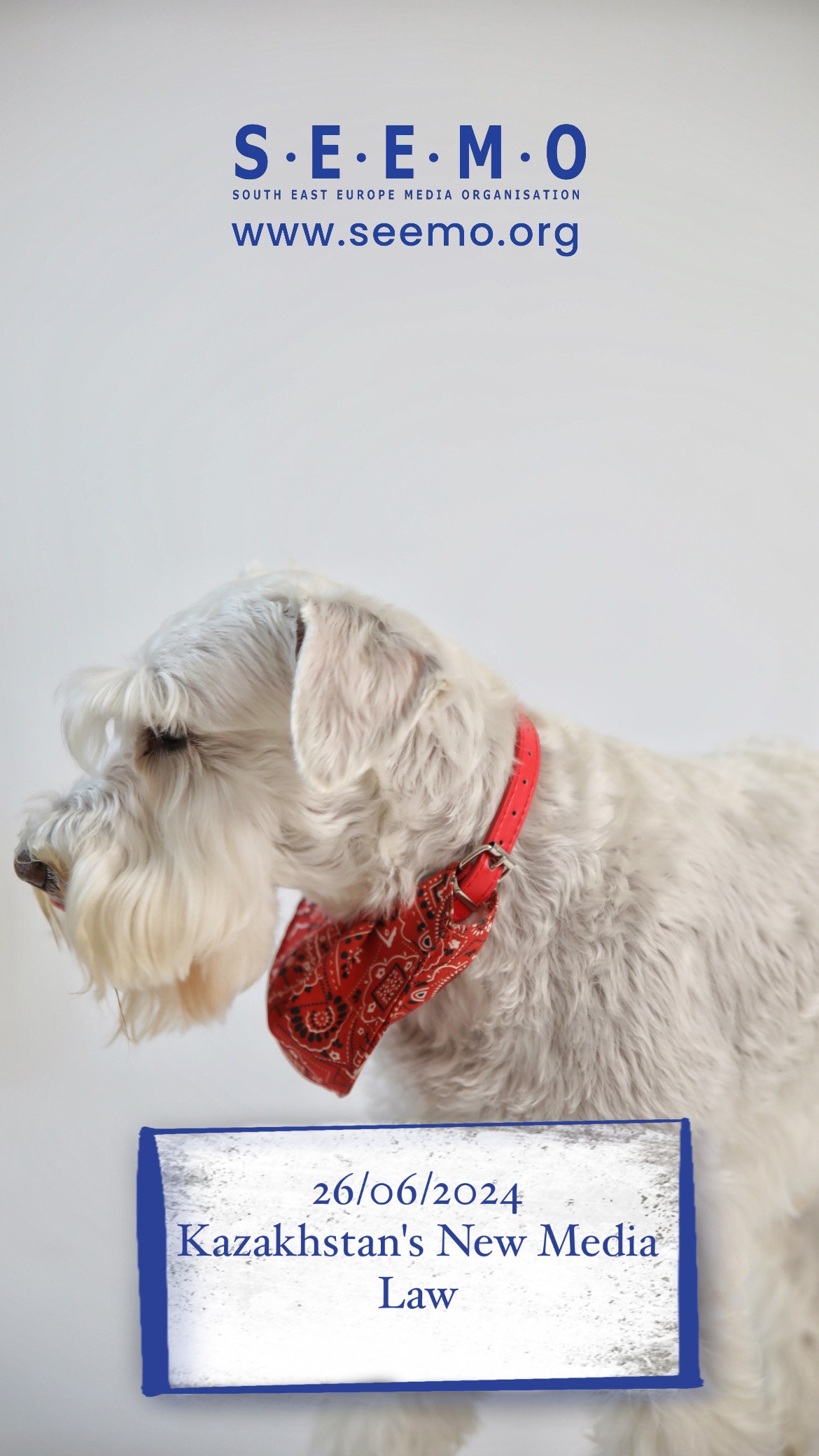On 19 June 2024, President of Kazakhstan Kassym-Jomart Tokaev (Қасым-Жомарт Тоқаев) signed a new mass media law in Kazakhstan that replaces previous regulations on media and television and radio broadcasting. Its vague and restrictive provisions pose significant challenges to both local and foreign journalists.
There are serious concerns about the law’s restrictive elements. Some controversial provisions were removed during the drafting process, but several problematic aspects remain.
One significant issue is the requirement for online publications to register with a government body and maintain a physical presence in Kazakhstan. This broadened definition of mass media grants the government extensive authority to interfere with and potentially suspend foreign journalists’ activities if their content includes “propaganda of extremism.” Kazakhstan’s vague definition of “extremism” has previously been used to suppress legitimate expression, raising concerns about potential misuse under the new law.
Additionally, the law stipulates that foreign media and journalists must obtain “appropriate accreditation” to operate, which could be manipulated by the government to restrict journalists and media outlets critical of the authorities.
The law also empowers authorities to conduct “mass media monitoring” to ensure compliance with national legislation and uphold undefined “national, cultural, and family values.” This provision could lead to increased self-censorship among journalists, restricting their ability to report freely.
Kazakhstan’s new media law poses a substantial threat to freedom of expression and media freedom. It is imperative for Kazakhstan’s international partners to urge the government to respect free speech and modify the law to meet international standards.
Positive changes connected to the new legislation are that the law shortens the period for filing claims against media for inaccurate information from three years to one. It also reduces the response time for “information owners” to reply to media inquiries from seven working days to five. Additionally, the law introduces a “special status of a journalist” to provide greater legal protections for journalists.
The South East Europe Media Organisation (SEEMO) condemns negative changes in the Kazakhstan’s new media law, which imposes excessive registration requirements on online publications and grants the government sweeping powers to interfere with and suspend the activities of foreign journalists under the pretext of preventing “extremism.” This law poses a significant threat to media freedom and freedom of expression, fostering self-censorship and enabling the government to silence critical voices. SEEMO calls on Kazakhstan’s authorities to revise the law in line with international standards and uphold their commitments to protecting free speech and press freedom.
The South East Europe Media Organisation (SEEMO) is a regional non-governmental, non profit network of editors, media executives and leading journalists in Southeast, South, East and Central Europe. SEEMO members are in Albania, Armenia, Azerbaijan, Belarus, Bosnia-Herzegovina, Bulgaria, Croatia, Cyprus, Czech Republic, Estonia, Georgia, Greece, Hungary, Kazakhstan, Kosovo, Kyrgyzstan, Latvia, Lithuania, Malta, Moldova (with the territory of Transdnestria), Montenegro, North Macedonia, Poland, Romania, Russia, Serbia, Slovakia, Slovenia, Tajikistan, Turkmenistan, Türkiye / Turkey, Ukraine and Uzbekistan. Austria, Italy, Vatican and San Marino have a special status in SEEMO. SEEMO has over 3000 individual members, and additional media as corporate members.
#fyp #mediafreedom #seemo #freespeech #southeasteuropemediaorganisation #ngo #journalist #kazakhstan #SEEMO #pressfreedom #mediafreedom #freemedia

